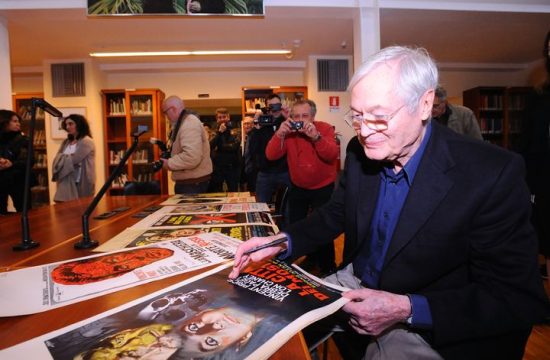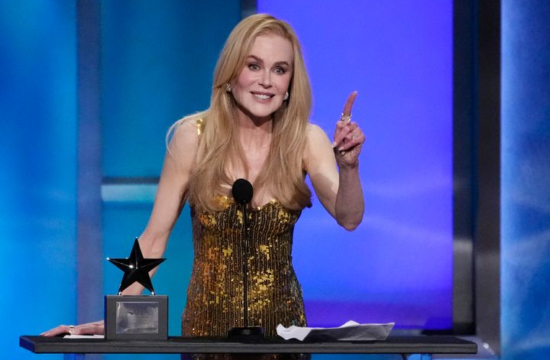
Los Angeles Man Charged With Tupac Murder Allowed Bail And House Arrest
LAS VEGAS (AP) — A judge set bail Tuesday at $750,000 for a former Los Angeles-area gang leader charged with orchestrating the killing of hip-hop legend Tupac Shakur in 1996 and said he can serve house arrest with electronic monitoring ahead of his trial in June.
Court-appointed attorneys for Duane “Keffe D” Davis told The Associated Press after the hearing in Las Vegas that they believe he can post bail. They had asked for bail of not more than $100,000.
The lawyers argued in a court filing a day before that their client — not witnesses, as prosecutors had said — faced danger. And they say that their 60-year-old client is in poor health after battling cancer, which is in remission, and that he won’t flee to avoid trial.
“We believe he can” post bail, public defender Robert Arroyo said after Tuesday’s hearing.
The lawyers accused prosecutors of misinterpreting a jail telephone recording and a list of names provided to Davis’ family members, and of misreporting to the judge that Davis poses a threat to the public if he were released.
Davis “never threatened anyone during the phone calls,” said Arroyo and Charles Cano, deputy special public defenders, in their seven-page filing Monday. “Furthermore, (prosecutors’) interpretation of the use of ‘green light’ is flat-out wrong.”
The “green light” reference is from a recording of an October jail call that prosecutors Marc DiGiacomo and Binu Palal provided last month to Clark County District Judge Carli Kierny, who presided over the bail hearing.

The prosecution’s filing made no reference to Davis instructing anyone to harm someone, or to anyone associated with the case being physically harmed. But the prosecutors added that “In (Davis’) world, a ‘green light’ is an authorization to kill.”
“Duane’s son was saying he heard there was a greenlight on Duane’s family,” Davis’ attorneys wrote, using his first name. “Duane obviously did not know what his son was talking about.”
Davis’ lawyers also used his first name Monday, asking Kierny to consider what they called “the obvious question.”
“If Duane is so dangerous, and the evidence so overwhelming,” they wrote, “why did (police and prosecutors) wait 15 years to arrest Duane for the murder of Tupac Shakur?”
Prosecutors point to Davis’ own words since 2008 — in police interviews, in a 2019 tell-all memoir and in the media — that they say provides strong evidence that he orchestrated the September 1996 shooting.
Davis’ attorneys argue that his descriptions of Shakur’s killing were “done for entertainment purposes and to make money.”
Davis, originally from Compton, California, is the only person still alive who was in the car from which shots were fired in the drive-by shooting that also wounded rap music mogul Marion “Suge” Knight. Knight is now serving 28 years in a California prison for an unrelated fatal shooting in the Los Angeles area in 2015.
Davis’ attorneys noted Monday that Knight is an eyewitness to the Shakur shooting but did not testify before the grand jury that indicted Davis ahead of his arrest arrest Sept. 29 outside his Henderson home. Las Vegas police had served a search warrant at the house in mid-July.
Davis has pleaded not guilty to murder and has been jailed without bail at the Clark County Detention Center in Las Vegas, where detainees’ phone calls are routinely recorded. If convicted at trial, he could spend the rest of his life in prison.
Davis maintains he was given immunity from prosecution in 2008 by an FBI and Los Angeles police task force investigating the killings of Shakur in Las Vegas and rival rapper Christopher Wallace, known as The Notorious B.I.G. or Biggie Smalls, six months later in Los Angeles.
DiGiacomo and Palal say any immunity agreement was limited. Last week, they submitted to the court an audio recording of a Dec. 18, 2008, task force interview during which they said Davis “was specifically told that what he said in the room would not be used against him, but (that) if he were talk to other people, that could put him in jeopardy.”
Davis’ attorneys responded Monday with a reference to the publication 12 years ago of a book written by former Los Angeles police Detective Greg Kading, who attended those interviews.
“Duane is not worried,” the attorneys said, “because his alleged involvement in the death of Shakur has been out in the public since … 2011.”









